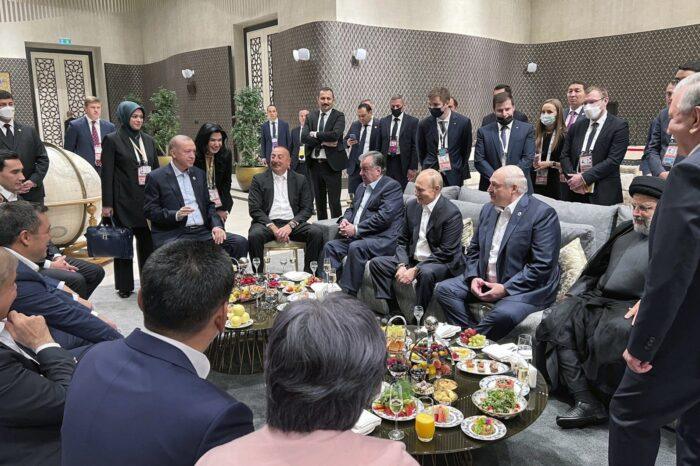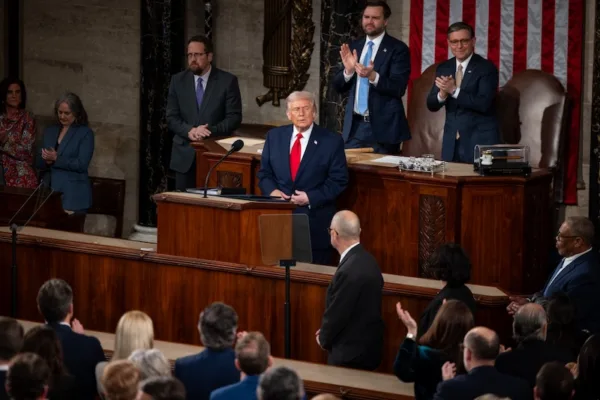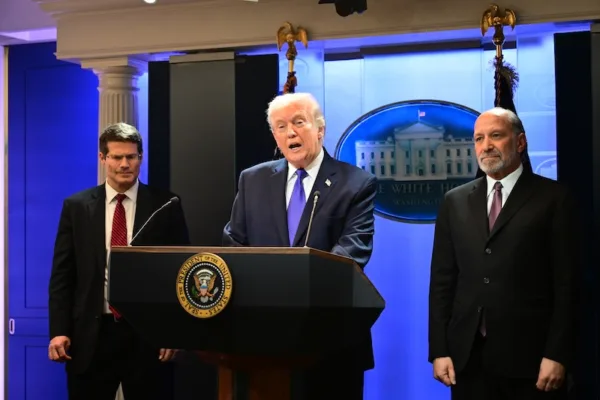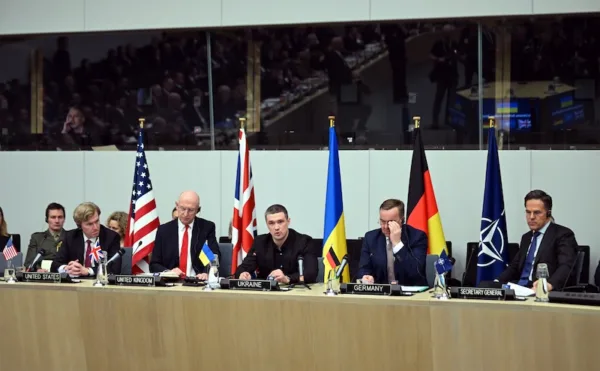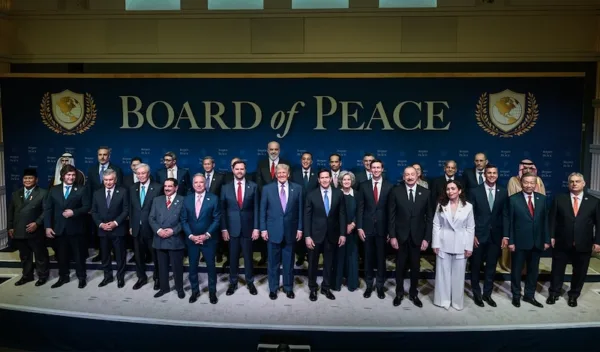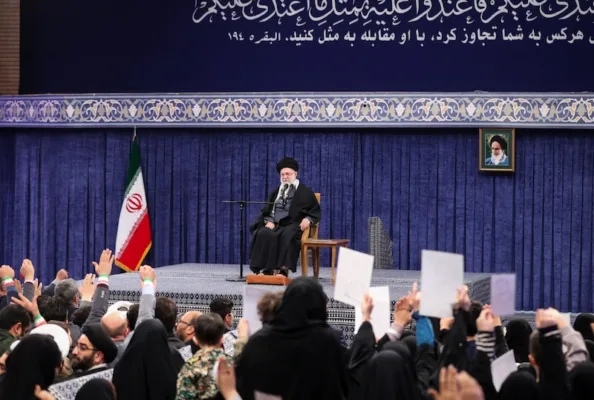The arms race between Washington and Beijing
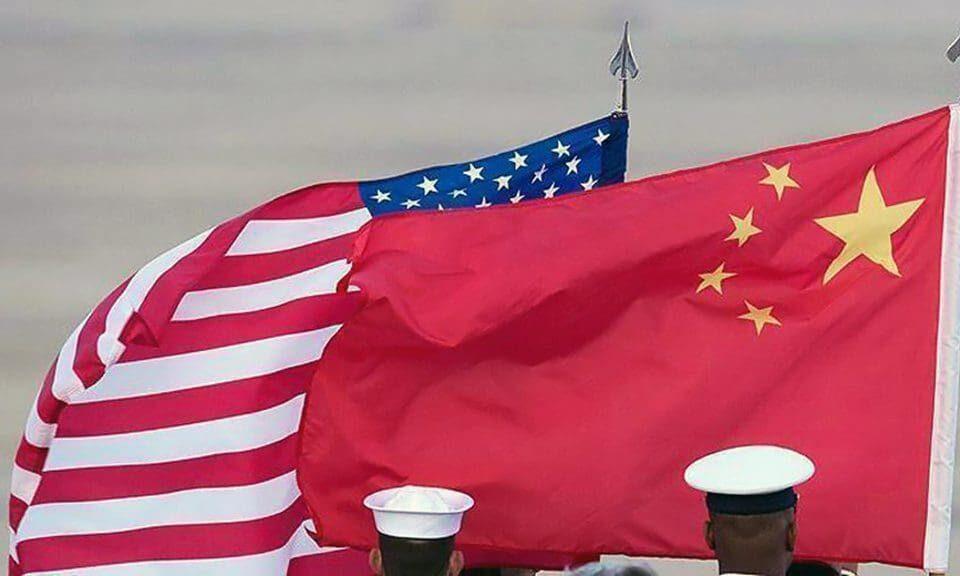
Although not many people consider an armed confrontation between superpowers to be likely today, nobody is ignoring the increasing tension among them due to significant disputes in different areas. In the last decade, many scholars and observers of superpower politics refer to territorial disputes as the most probable source of contention among China, the U.S. and Russia.
The maritime delimitation disputes in the South China Sea and the disputes over the Spratly Islands have been considered as the most risky issues for superpower relations. Not only did the United States declare the South China Sea as an area of national interest during Barack Obama’s administration, but China’s construction of military bases on some of these islands was also considered a significant regional security issue by the Pentagon. It was not the only territorial dispute in the Asia Pacific. The Senkaku Island dispute between China and Japan and the Kuril Island dispute between Japan and Russia made the region very much prone to military tensions and diplomatic crises. The concern was a potential escalation of these tensions to an armed confrontation between China and U.S. allies in the region.
Similar tension has been present between Washington and Moscow in regards to the Russian occupation of some parts of Ukraine, most importantly the Crimea and the earlier invasion of parts of Georgia in 2008. With the implementation of sanctions against Russia after the Ukrainian crises, the instruments that superpowers use have also started to change.
After the failure of diplomatic pressure, soft threats of action and harsh rhetoric, the U.S. began to adopt more economic instruments. For the Obama administration creating a trade agreement in the Pacific with like-minded countries was a priority in challenging China’s regional economic hegemony.
However, President Donald Trump, with his utmost opposition against multilateral agreements and Obama’s treaties, withdrew the U.S. from this initiative. Instead President Trump started to pressure bilateral treaties on trade and launched trade wars with countries that have large trade surpluses with the U.S.
China has been the main target for the Trump administration. Since the beginning of these trade disputes, the main issues on the agenda has been unfair trade practices, intellectual property right infringements and protectionism in trade. While many analysts were speaking about trade disputes as a main source of tension between superpowers, another development changed the trajectory of the disputes among the major powers.
After much speculation, the United States announced that it would withdraw from the Intermediate-Range Nuclear Forces Treaty (INF) due to the Russian violation of the agreement. In the announcement, Secretary of State Mike Pompeo stated, “For years, Russia has violated the terms of the Intermediate-Range Nuclear Forces Treaty without remorse… It does no good to sign an agreement if a party’s not going to comply with it.”
The most important part of this decision was immediately after the announcement by the U.S., NATO made a statement supporting the U.S.’ decision accusing Russia for violating the terms of the treaty. NATO Secretary-General Jens Stoltenberg said U.S. NATO allies are with the U.S. in this decision, something we have not heard this openly for a long time. The Russian administration retaliated shortly after and also pulled out from the agreement.
The Intermediate-Range Nuclear Forces Treaty was signed in the last years of the Cold War in order to prohibit the use of missiles with ranges between 500 and 5,500 kilometers between the Soviet Union and the U.S. Although there is a six month period to formally withdraw from the agreement the Russian response to the agreement demonstrates that the Russian government will not be the actor that will initiate talks to start new negotiations with the U.S.
This decision has certainly shifted the superpower competition back to the arms race. And more interestingly, this may not be a dispute only between Russia and the U.S. The suspension of the agreement at this point will also influence the arms race between the U.S. and China.
For the last few years now there has been increasing concern among some in Washington that the U.S.’ strict compliance to the INF Treaty created a disadvantage for the U.S. in the Asia Pacific region. Accordingly, while the U.S. was adopting the terms of the agreement China was arming itself with weapon systems that could target the treaty allies of the U.S. in the region.
The U.S. military leaders were stating that the lack of ground based capability can pose significant risks for the U.S. Even President Trump stated last year that the situation is unacceptable for the U.S., since China is not a party of the agreement and Russia has violated the terms of the agreement.
Because of this, for some analysts, this withdrawal of the U.S. will create a condition for an arms race in the region between China and the U.S.
Beijing’s response toward the U.S.’ decision demonstrates that this arms race scenario can be a real issue between the two countries. In its statement China’s Foreign Ministry stated that Beijing opposes U.S. withdrawal from the agreement but it is also not in favor of a multilateralization of the agreement, meaning that China should not be asked to be part of the agreement.
With this new debate on the arms race and with the continuation of the diplomatic rifts and economic disputes, we are entering a more complicated period of superpower relations. This would definitely impact the whole international system and the relations of other regional actors with these superpowers.
This article was first published by Daily Sabah on February 4, 2019.

